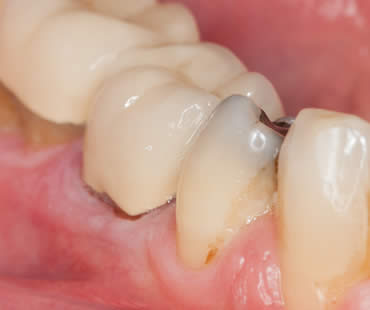
by Dr. Adkins | Nov 22, 2019 | Blog, Dental Information, Dental Topics 2
Many people find foods such as cheese, yogurt, and milk to be a very enjoyable part of their diet. Not only are some of these dairy items tasty and nutritious, did you know they can also help your teeth and gums? Studies show that consuming dairy products regularly can lower the occurrence of dental diseases. Let’s see which dairy items you should consider incorporating into your diet and why.
Reduce gum disease
The primary benefit of dairy to your dental health is lowering your risk of periodontal disease. Also known as gum disease, this condition affects roughly 75 percent of Americans at some level. It may be minor gingivitis or advanced periodontitis. If left untreated, gum disease can cause tooth loss, contribute to heart disease and stroke, and worsen diseases like diabetes and osteoporosis. Lactic acid is one of the key ingredients in many dairy items, and researchers believe that lactic acid is related to reducing gum disease.
Choose your dairy
Just because a food is identified as a dairy product, that doesn’t necessarily mean it’s completely healthy for you. Here are some tips to help you choose the ideal foods and beverages for your dental health:
- Look for low fat and non-fat options.
- Choose white milk instead of flavored milk, such as chocolate. The added sugars can lead to tooth decay.
- Consider natural and organic products when possible.
- Select unsweetened yogurt without sugar or artificial sweeteners. A good alternative is Greek yogurt which you can add fruit or honey to create an appetizing, healthy snack.
Enjoy additional benefits
Avoiding gum disease isn’t the only benefit of eating dairy. It helps build strong teeth and bones, and is rich in vitamins that are good for your overall health. So the next time you get hungry, try some cheese or a glass of milk because these foods will not only satisfy your hunger but also keep you smiling.
Our dental office is located in McDonough

by Dr. Adkins | Aug 2, 2019 | Blog, Dental Information, Dental Topics 2
Porcelain veneers can transform your smile from one that embarrasses you to one that you’re proud to show off. A thin shell of porcelain is bonded onto the fronts of your teeth to improve the shape and color. If you’re looking to close gaps between your teeth, reshape your teeth, or brighten stained teeth, porcelain veneers may be your answer. Here are the answers to some frequently asked questions about veneers.
How do veneers work?
Made from durable and natural-looking porcelain, veneers are customized to fit your teeth. Your face shape, skin tone, eyes, height, and even your personality are considered when designing your dental veneers. They are bonded securely to your teeth to give you the smile you always wanted.
Is it a long process to get them?
The process for getting veneers usually takes about four to six weeks. At your first appointment, your teeth will be shaped and their surface will be slightly roughened. Impressions will be taken to create models of your mouth so that the veneers can be personalized for you. At the next appointment, your teeth will be cleaned and polished before a special adhesive is used to bond the veneers to your teeth. A high-intensity light is used to set the adhesive.
What will my teeth look like while I’m waiting for veneers?
After your teeth have been prepared for veneers, usually you will be fitted with specialized temporary veneers. These interim veneers look better than your original teeth, so you won’t feel self-conscious during the waiting period.
How long do veneers last?
Porcelain veneers typically last from ten to twenty years. Porcelain is very strong and durable, and resistant to stains and wear.
What are the advantages to veneers?
Since the bond to your original teeth is strong, porcelain veneers can be treated just like your own teeth. They appear very natural because the porcelain looks similar to your tooth enamel. Veneers can also protect your teeth from further damage if they are chipped or worn down, so they not only cover your teeth with a layer of protection but also create a beautiful bright smile.
Our dental office is located in McDonough

by Dr. Adkins | Aug 24, 2018 | Blog, Dental Information, Dental Topics 2
Receding gums not only look unattractive, they can harm your health. If you notice that your gums are receding, ask your dentist for help so that you can reverse the problem instead of allowing it to worsen. The goal is to catch gum recession early and get it under control before it turns into periodontal disease.
What exactly is gum recession? It’s the condition in which the outer tissue on a tooth begins to wear away toward the root, leading to exposure of your tooth enamel and eventually your tooth’s root. If untreated, receding gums lead to periodontal disease. The best way to avoid this problem is to prevent it from starting in the first place. This is easily done by performing good oral hygiene techniques. Brush twice a day with a soft toothbrush using a circular motion and mild pressure. Also, floss your teeth every day.
If you see that your gums are starting to recede, it’s likely that practicing better dental hygiene will restore your gum health over time. A deep cleaning by your dentist will help kick-start your hygiene routine at home. In some cases, an even deeper cleaning called root planing may be necessary.
For more advanced cases of gum recession, your dentist may need to take tissue from other areas and use it to cover exposed roots. This can boost your gum tissue and make it healthy again. If you experience pain and increased sensitivity due to exposed roots, your dentist may prescribe medications to help.
The main thing to remember about receding gums is that quick action is important. Good dental care is key in both preventing it and in correcting the problem after it has begun. If you notice that your gums are pulling away from your teeth or experience sensitivity, start the healing process as soon as possible by asking your dentist for treatment advice.
Schedule your appointment at our McDonough dental office





 770-957-5214
770-957-5214  E-Mail Us
E-Mail Us 
